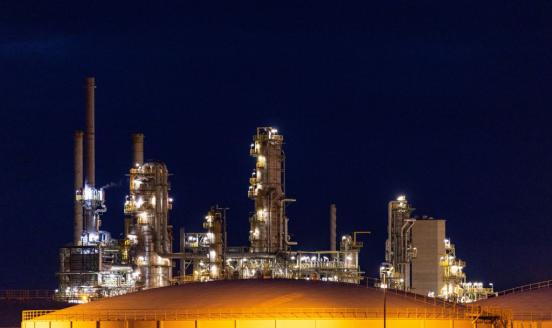The clock is ticking: Ukraine’s last chance to prevent Nord Stream 2
Ukraine is running out of time to provide western gas consumers with the necessary trust to abandon the Nord Stream 2 gas pipeline project.
Nord Stream 2, the gas pipeline to directly connect Russia and Germany, is undoubtedly bad for Ukraine. It will allow Gazprom to largely circumvent the Ukrainian gas transit system when supplying EU consumers. This could result in significantly lower transit revenues for Ukraine: up to USD 2 billion per year, which currently corresponds to about 2-3% of Ukraine´s GDP.
More importantly, it might make gas supplies from the EU to Ukraine more difficult. If Russian gas supplies to Slovakia are delivered through Nord Stream 2, Germany and the Czech Republic, the price of this gas at the Ukrainian border will be significantly higher – if the volumes are at all sufficient to supply Ukraine.
Hence, Ukraine might be forced to resume buying gas from Russia. Without the leverage of gas transit it used to have in the past, these negotiations will be very one-sided. In fact, Russian demands might not only be about substantial prices, but could also include political components.
Ukraine is not doing enough to prevent Nord Stream 2 from happening. True, Naftogaz and some policy makers are trying to lobby in Washington and Brussels to prevent the pipeline from being built. But they do not have good arguments to convince influential European gas consumers.
It will not be the fault of others acting in their own interest, it will be the fault of Ukraine
The gas transit tariffs through Ukraine are currently more expensive than the expected tariffs for Nord Stream 2, and the Ukrainian tariff policy is neither transparent nor predictable. European gas consumers simply do not trust that Ukraine will be an inexpensive, reliable gas transit route for the next decade.
Instead of developing an attractive offer for gas transit customers, Ukraine´s government has been sitting on its hands for two years. The energy regulator is politicised and dysfunctional. The gas transit system remains largely unreformed and integrated into Naftogaz. And discussions in Kyiv remain centred on who controls the transit income. And with every day, Nord Stream 2 inches closer to completion.
At this point, it is not about political statements of good will or timid reform plans stretching to 2020, it is about action in the first half of this year. The transit system operator (TSO) should be immediately unbundled and a fair tender for the operation of the system should allow western system operators to take over the management of the new TSO.
This could provide western gas consumers with the necessary trust to abandon the Nord Stream 2 project. Without quick and decisive steps, however, there will be almost no chance to prevent the fulfilment of the project and its potentially disastrous consequences for Ukraine. And make no mistake, it will not be the fault of others acting in their own interest. It will be the fault of Ukraine, if it does not manage to offer a trustworthy, economically sound alternative to Nord Stream 2.




